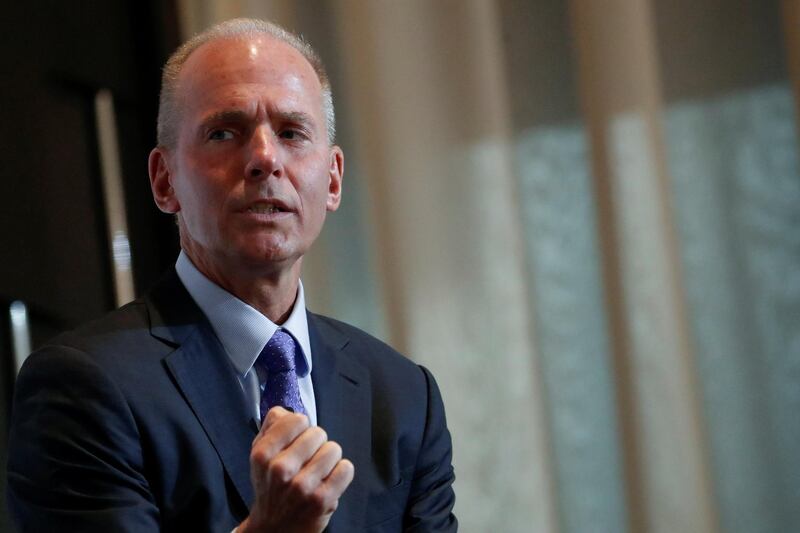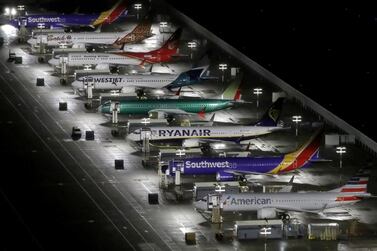Boeing chief executive Dennis Muilenburg will start the first of two congressional hearings on Tuesday by recognising that the world's biggest aerospace company made mistakes with its now-grounded 737 Max jet.
Mr Muilenburg will testify before the US Senate Committee on Commerce, Science and Transportation today and then appear on October 30 before the US House Committee on Transportation and Infrastructure to speak about the aircraft model that killed 346 people in two crashes.
"We have learned and are still learning from these accidents," Mr Muilenburg will tell the Senate on Tuesday, according to pre-written comments released by Boeing in advance. "We know we made mistakes and got some things wrong. We own that, and we are fixing them."
Mr Muilenburg, who was stripped of his chairman position earlier this month, will become the first Boeing official to testify publicly on Boeing's role in the tragedies of the Ethiopian Air and Lion Air crashes. The incidents damaged the flying public's confidence in the jet, disrupted global operations of carriers and raised questions on the jet's certification and design. Resting on Mr Muilenburg's testimony are the aerospace giant's reputation amid heightened scrutiny from lawmakers, investors and regulators.
Boeing has made improvements to the 737 Max, including changes to its flight control software implicated in both crashes, to "ensure that accidents like these never happen again", he said.
Mr Muilenburg noted that the two crashes involved the repeated activation of the flight control software, called MCAS, which responded to erroneous signals from a sensor that measures the airplane’s angle of attack.
Software changes on the MCAS will ensure it cannot be activated based on signals from a single sensor and cannot be activated repeatedly.
The process of returning the plane to service "has taken longer than we originally expected, but we’re committed to getting it right", he said. "Return-to-service timing is completely dependent on answering each and every question from the Federal Aviation Administration."
Boeing has flown more than 814 test flights with the updated software and conducted simulator sessions with 545 participants from 99 customers and 41 global regulators.
By the time the Max returns to the skies it will be "one of the safest airplanes ever to fly", the chief executive said.
The company repeatedly said it expects the Max grounding to be lifted by the fourth quarter of 2019.
He added that "regulators around the world should approve the return of the Max to the skies only after they have applied the most rigorous scrutiny, and are completely satisfied as to the plane’s safety".
"The flying public deserves nothing less," he said.
The executive acknowledged the Max ban's impact on the aviation industry and travellers.
"We know the grounding of the MAX is hurting our airline customers, their pilots and flight attendants, and most importantly, the people who fly on our airplanes," he said.
Mr Muilenburg's testimony coincides with the one-year anniversary of the first 737 Max crash, a Lion Air jet that dived into the Java Sea off the coast of Indonesia minutes after takeoff.
Despite admitting to mistakes with the Max, the executive insisted the company is also "learning deeper lessons that will result in improvements in the design of future airplanes".








